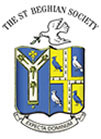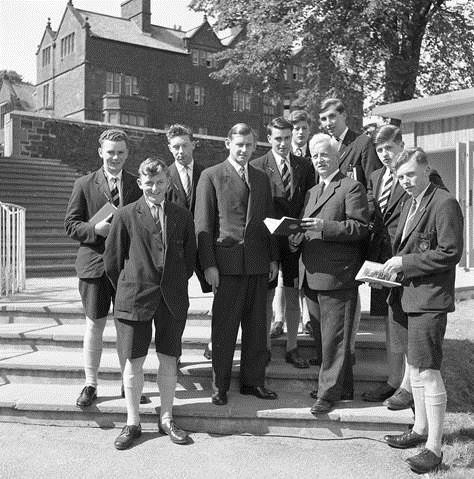|
 |
The Old St Beghian | |
| July 2020 | |||
‘A Good Time for All’:
“Each decade, two, three, four and more generations take on the legacies left by innumerable past lifetimes. So now, in May 2000, we celebrated Victory in Europe for the second time in a hundred years over Germany, this time over the Third Reich in the bloodiest of wars imaginable.
What were you doing when victory was announced on May 8th 1945? That question is asked by grandchildren in 2020.
My belief is that most inhabitants aim at leaving their birthplace in a better state than on their arrival. Despite hardships and doubts surely most in the civilised world would answer in the affirmative.Starting the second year at boarding school, a pretty tough prospect faced a fourteen year-old at St Bees in wartime. Surviving alone at a British public school, it was said, meant you were pretty well equipped for meeting many of life’s tasks.
Fagging, (abandoned in the l970s) for the first three terms, was comparable to being batman to an officer in the services. Joining the school Junior Training Corps was voluntary, yet nearly everyone did. The army discipline promised some concession during compulsory National Service to follow, providing the student passed Cert. T military exam. Wartime rationing dictated the school’s menu, in fact this continued beyond 1953. Physical training was a lesson taught by a former army instructor; rugger and cricket, cross-country events, road- running, squash and Eton fives, became the daily routine, resulting in everyone being very fit to take on inter-school competitions with fixtures against Rossall, Giggleswick, Sedbergh, Stonyhurst, and King William’s, as well as against local town teams reinforced by demobbed servicemen.
VE Day gave everyone a tremendous lift, celebrations taking over in the UK as well as overseas. A public holiday was announced, but not for us at St Bees, where early prayers and lessons went on as usual. Senior boys protested to teachers, ‘surely a public school qualified us to have the public holiday day off?’ Granted, that in that term there would be an extra three-quarter day to the normal two over the summer term. Meanwhile the population celebrated as you will have read in newspapers and television reports, rejoicing after the terrible continual battles on land, air, and sea, leading up to the surrender by Germany. Hope for the future was enormous.
Newspapers and radio were soon to emphasize, as Winston Churchill did too, that the war with Japan in the Far East still raged at its worst. Rumours around the school were that the fundamentally different views which existed between Russia and the West raised the dangerous possibility of fighting the Soviet Union, our ally in the European campaign. The Junior Training Corps (maybe then the CCF?) warned us to be alert for anything. More senior boys were leaving school to go straight into the army. I recall E. A. Appleton, who left after my first term in 1944, returning in uniform to St Bees and remembering me as a twelve year old practising piano on School House. My attempts at Chopin's Military Polonaise and Beethoven’s 8th Sonata, he said, were favourites of his army colleagues!
Thankfully, the Far East troubles collapsed when still in 1945, America launched two nuclear bombs against Japan. That settled it with the enemy's unconditional surrender.In 1948 came the Berlin Blockade, and the well named Iron Curtain was stretched from the Arctic to Trieste, putting everyone on tenterhooks again. The rest is history.
Celebrations following the victory over Japan were immense, and wonderful street parties all over Britain and the Commonwealth generated enthusiasm for just being alive.”
Ivor has forwarded a photograph taken on Speech Day 1955, taken ten years after V.E. Day, showing J. C. Wykes on the Memorial Hall steps along with some prize-winners.
Speech Day 1955 - Ten years after V.E. Day
Home
The St Beghian Society
St Bees School,
St Bees, Cumbria, CA27 0DS.
Tel: (01946) 828093 Email: osb@stbeesschool.co.uk
Web: www.st-beghian-society.co.uk
![]()
